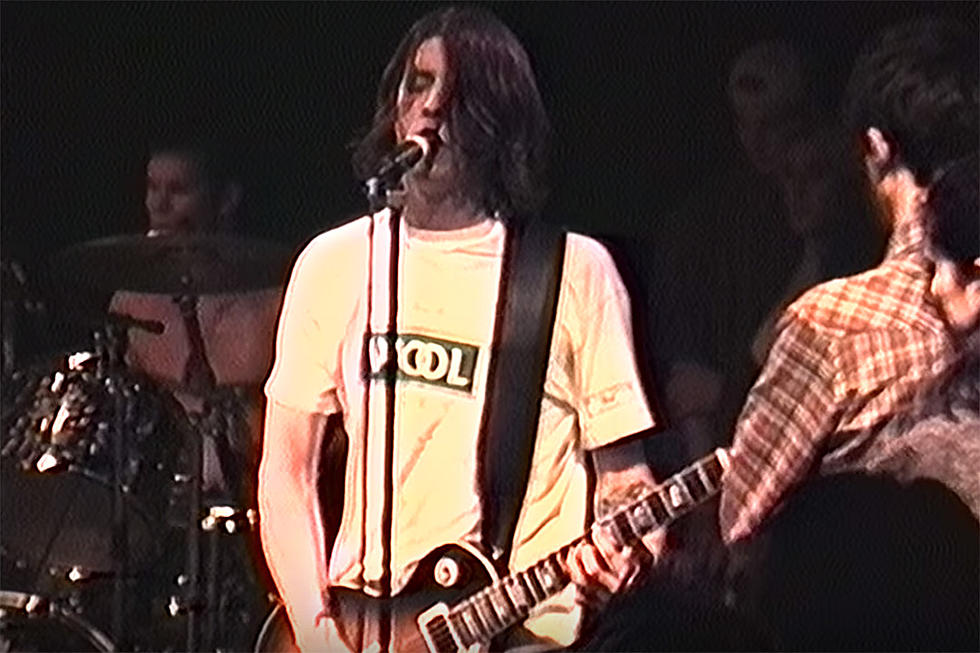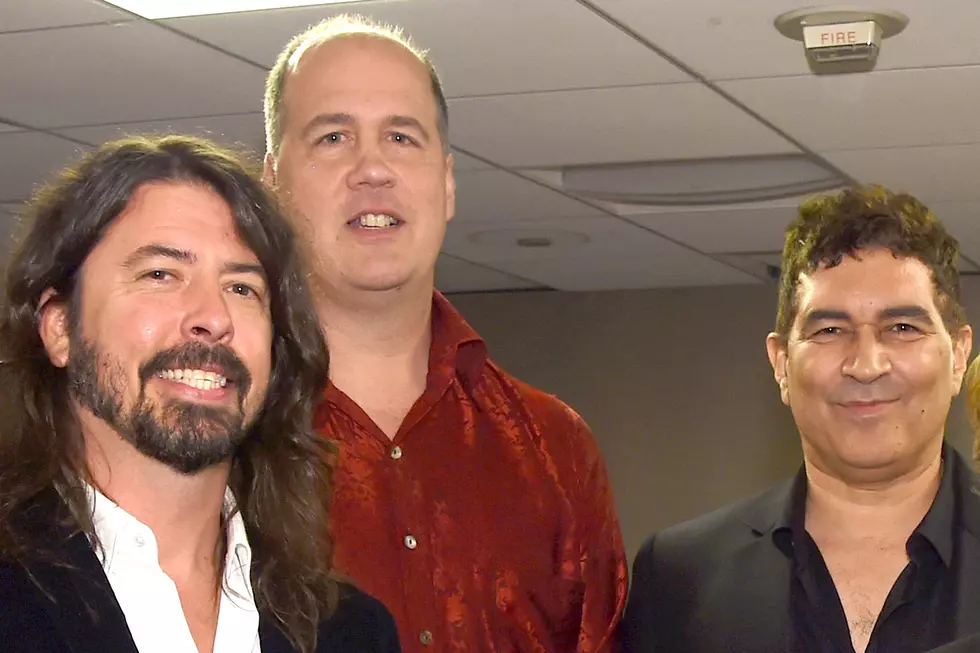
The Foo Fighters’ ‘Sonic Highways’ Moves On to D.C.
In this week's episode of HBO's 'Sonic Highways,' Dave Grohl and company take their road show to Washington D.C. The nation's capital is one of its most important music cities, no doubt because of its strange stew of politics, poverty and art. "The gap between the dream and the reality is excruciatingly wide," says punk activist Mark Anderson.
But does art really factor into the D.C. equation? Punk legend Ian Mackaye notes that growing up in the '70s, no rock bands were from Washington. The best he can manage is Starland Vocal Band, fine purveyors of 'Afternoon Delight.'
Grohl, the series' director, answers with a video montage of D.C. musicians: Marvin Gaye, Duke Ellington, Henry Rollins, Nils Lofgren, Fugazi, Trouble Funk and the late, great Chuck Brown. This leads us into D.C.'s major musical legacy: go-go, that mix of funk, soul, and its trademark pocket beat, essentially invented by Brown. "The go-go sound, which Chuck created, has helped to define what Washington D.C. is today," Mayor Vincent Gray adds.
Then we're in suburban Virginia, at Don Zientara's Inner Ear studios. This is ground zero for the early '80s D.C. punk scene: Bad Brains, Minor Threat, this is where it all happened. Grohl sits down with the Bad Brains to talk about the early days, and everybody gets in on the Bad Brain loves: Beastie Boy Mike D., Rick Rubin, Mackaye.
Mackaye reflects on his '70s love for Ted Nugent and how "punk just seemed kind of a joke to me." Enter his first band, the Teen Idles, and Mackaye's work ethic. During their first recording session, a band touring the studio stopped to point and laugh. "So much of my work came out of feeling we were being dismissed," Mackaye says.
Here's where the two genres intersect: A go-go band named the Mighty Peacemakers played Mackaye's prom. This was when he realized that local bands like Trouble Funk and Chuck Brown had created a viable scene. "It was really inspiring for us," he says.
Psyched to get it going but without label support, Mackaye founds Dischord, the essential D.C. punk label, and starts releasing singles by local bands. Grohl knows you may not be familiar with the bands that recorded on the label: "These bands might not be the most famous bands in the world, but these bands influenced some of the most famous bands in the world. The Red Hot Chili Peppers, Beastie Boys, Jane's Addiction, Green Day -- we were all brought up and influence by these bands from D.C. and Dischord Records."
Mark Anderson reflects on moving from Montana to D.C. only to find that the scene reflected on punk records didn't match the realities of the scene happening in the nation's capital. Here's the guy, along with Amy Pickering, who brought activism and political awareness to the groups of D.C. kids who were writing and performing mostly for each other.
Again, the threads intersect. Grohl joins up with his "favorite band in the world," Scream, and his first gig as their drummer is one of Anderson's Positive Force benefits.
Grohl wraps it all up by noting the D.C. has been the biggest influence on him as a musician (and on the Foo Fighters as a band), and they sew it all up with the new track featuring Bad Brains, 'The Feast and the Famine':
Next week: 'Sonic Highways' heads to Nashville. Get details on the series here.
You Think You Know the Foo Fighters?
More From Diffuser.fm









